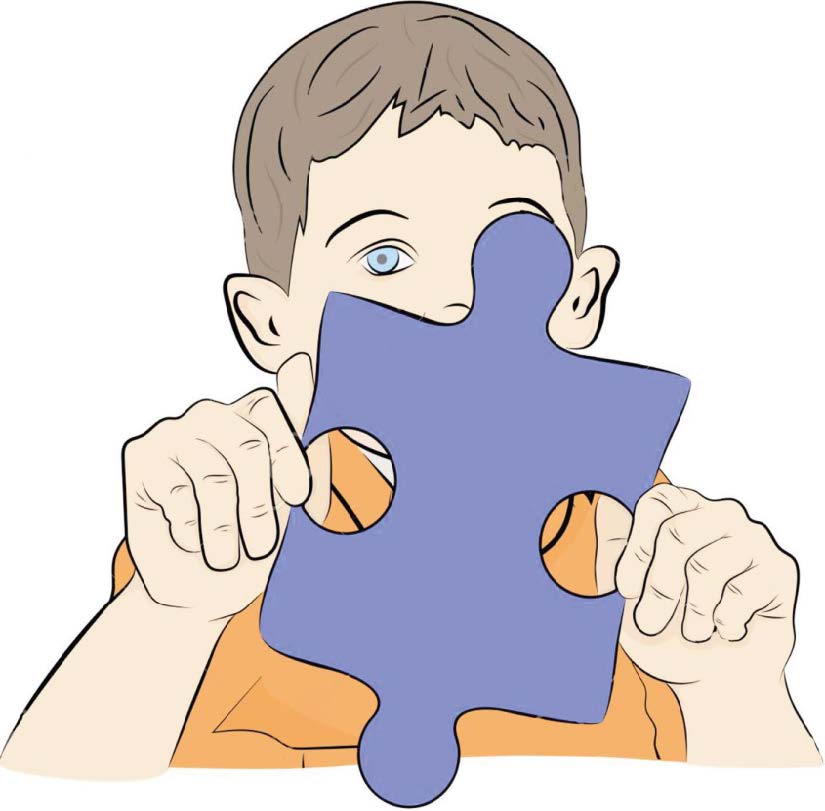BY LAUREN AGORATUS, M.A.

No one used to know what autism meant. Now it's headline news. "Light it up blue!" Everything from the CDC prevalence reports to how to include children with autism in schools. Families affected by autism are not the only ones aware, now the general public is aware of autism. It's time we moved from awareness to acceptance.
Autism is sometimes met with stigma and stereotypes. It is much easier to explain physical disabilities than an invisible disability, and this includes to the children themselves. There is no "typical" child with autism, as it is a spectrum disorder with varying abilities. As the saying goes, "If you've met one child with autism, you're met one child with autism." Even then, the child may change over time. A child who was initially non-verbal until age six and used American Sign Language to communicate can become a college student (like my daughter).
Neurodiversity is the new mindset
Far too many parents still feel they need to apologize for their child's disability. Disability doesn't define anyone, it's just part of who they are. There was a great post on The Mighty called "My Children's Differences Are Not Something to Apologize For," found at themighty.com/2017/01/accepting-autism/?fbclid=IwAR36fBG56HfWcGF- 4PyNR1Pjin4jIZ_wYqEOzlfif4kJiH__znKwnuvbU
According to the Autism Awareness Centre, "Neurodiversity is the concept that humans don't come in a one-size-fits-all neurologically 'normal' package. Instead, this recognizes that all variations of human neurological function need to be respected as just another way of being."1 Neurodiversity is now being seen as a biological fact, and individuals with autism and their families are asking others to accept and respect neurodiversity, not try to "fix" it. The book "Don't Fix Me; I'm Not Broken: Changing Our Minds about Ourselves and Our Children" discusses the importance of unconditional love rather than focusing on deficits or brokenness.
Self-Advocacy is Key
The Autistic Self-Advocacy Network (ASAN) has been instrumental in bringing the viewpoints of individuals with autism to the forefront, nationally. They use the motto, "Nothing About Us Without Us!" This means that any program or policy that will affect people with autism should include people with autism as stakeholders providing input, as is true of all disability advocacy. ASAN has exposed a variety of critical problems, such as organ donation discrimination for people with disabilities. They promote supported decision-making ("EVERYONE has the right to make choices") for all individuals on the spectrum, to the best of their ability. Too often, it is automatically assumed that individuals with autism require guardianship, taking away their rights. ASAN has a useful toolkit, "The Right to Make Choices," for families and another version for individuals with autism (see Resources).
There is currently a debate regarding "person first" language such as individual with autism vs. some self-advocates who prefer identity first language such as "autistic person" (see Resources). Rather than guessing, it may be best to ask individuals with autism themselves which they prefer. Families and self-advocates can agree that we need to move from only awareness of autism to full acceptance. Acceptance does not mean "tolerance", which implies putting up with something, but recognition and acknowledgment of the neurodiversity represented on the autism spectrum and among us all.
To spread information about autism acceptance, many organizations celebrate neurodiversity during April, which has been designated as Autism Acceptance Month. ASAN has a website with factsheets and resources about autism at autisticadvocacy.org/pro- jects/community/autism-acceptance-month.
The Arc also has an autism awareness month toolkit available at thearc.org/what-we-do/resources/toolkits/autism-acceptance-month. There are even Facebook pages, like Parenting Autistic Children with Love and Acceptance ( facebook.com/ParentingAutisticChildrenWithLoveAcceptance), an international community that provides a safe space for autistic people to help parents learn from them, with the tagline, "Change the World, Not your Autistic Child."
The tagline for ASAN's Autism Acceptance Month website is "Acceptance is an action," which means that autism acceptance is an active process that requires both a shift in thinking and in action. This April, make that shift in thinking and action and sign the pledge for Autistic Inclusion at autismacceptancemonth.com/pledge ! •
ABOUT THE AUTHOR: Lauren Agoratus, M.A. is the parent of a child with multiple disabilities. She serves as the Coordinator for Family Voices-NJ and as the central/southern coordinator in her state's Family-to-Family Health Information Center, both housed at SPAN, found at spanadvocacy.org
AWARE AND ACCEPTING : RESOURCES
Autistic Self-Advocacy Network (ASAN) autisticadvocacy.org ASAN Toolkit "The Right to Make Choices" autisticadvocacy.org/policy/toolkits/choices Identity First Language autisticadvocacy.org/about-asan/identity-first-language
The Mighty "My Children's Differences Are Not Something to Apologize For" themighty.com/2017/01/accepting-autism/?fbclid=IwAR36fBG56HfWcGF- 4PyNR1Pjin4jIZ_wYqEOzlfif4kJiH__znKwnuvbU/
National Resource Center for Supported Decision-Making supporteddecisionmaking.org
Wrong Planet Humor and Diversity in Autism wrongplanet.net
United Spinal Association unitedspinal.org/pdf/DisabilityEtiquette.pdf
Disability is Natural disabilityisnatural.com/people-first-language.html
Self-Advocates Becoming Empowered (SABE) People First Language Manual sabeusa.org/wp-content/uploads/2014/01/People-First-Language-Manual.pdf
University of Kentucky Humor and Diversity in Autism wrongplanet.net Those of us DisLabeled (Chapter 3-Etiquette) hdi.uky.edu/Media/Default/Documents/DisLabeled.pdf